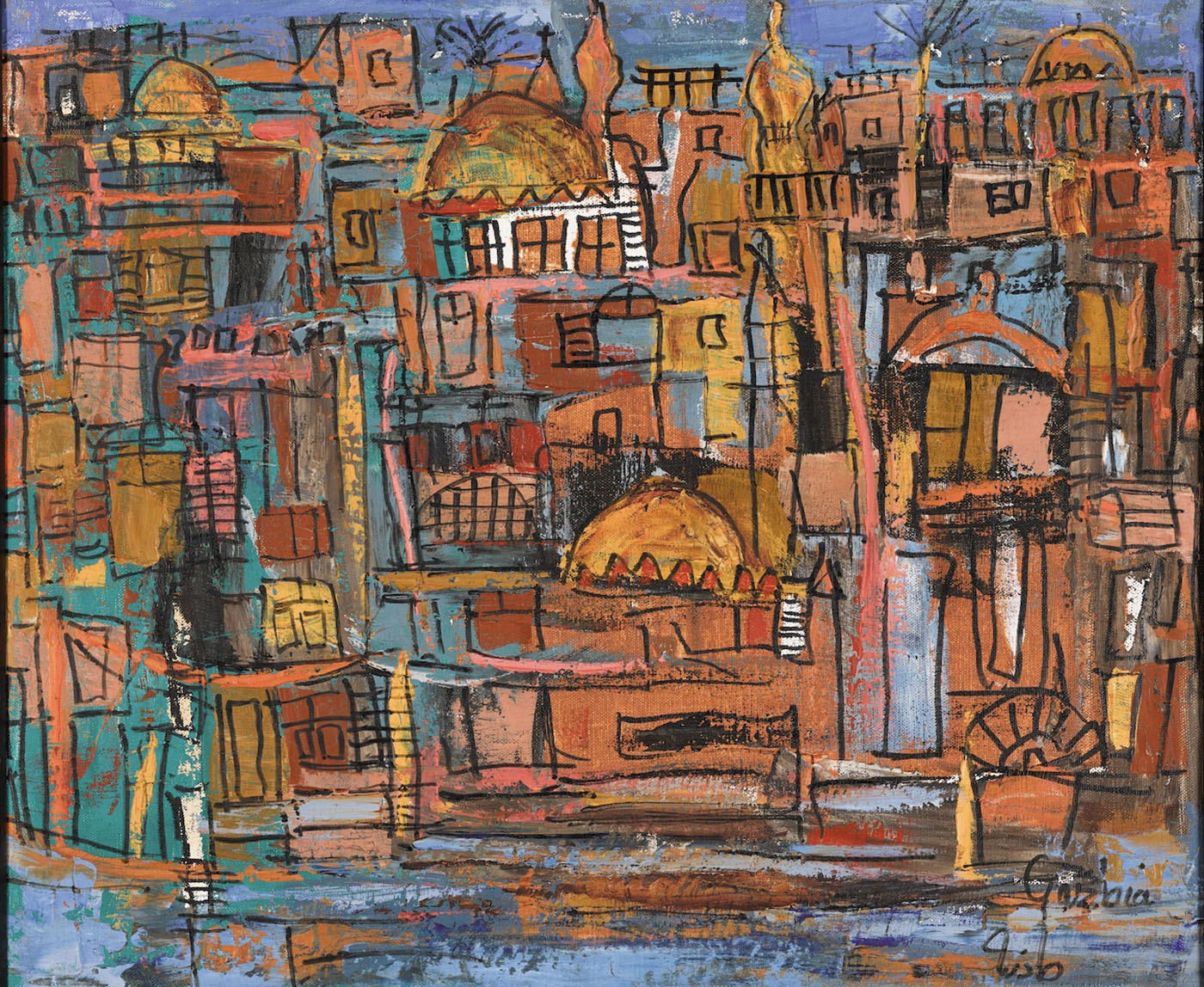Visite ancestrale dans un magasin Internet du Caire...
Sarah Eltantawi
Bientôt, je déménage d'un appartement loué à l'appartement de ma famille, qui était auparavant loué à un personnage fantasmagorique qui se trouve manifestement en Australie (nous en reparlerons plus tard). Cela nécessite d'entrer dans un magasin, de prendre un numéro, d'attendre, et de subir un retard et une aggravation presque certains. J'ai décidé que c'était aujourd'hui. Remplie de mahshe de la veille, je me suis sentie bien nourrie lorsque j'ai pris la route pour le magasin d'Internet, sans petit-déjeuner ni déjeuner. J'avais une bonne dose de caféine et j'étais prêt pour la bataille qui m'attendait.
Mon tour est venu. Je me suis assise sur une chaise violette, en face d'une femme portant un hijab violet. En fait, le magasin avait une teinte violette. J'ai calmement expliqué ma demande et fourni le numéro de téléphone de la ligne fixe de l'appartement. Elle tape langoureusement sur son clavier. "Puis-je voir votre pièce d'identité ?" J'ai donné ma carte d'identité. Elle a saisi d'autres informations. Elle m'a regardé d'un air morne. "À quel nom ce numéro de téléphone est-il enregistré ?"
"Le nom de mon père. (J'ai récité toute sa laqab [chaîne de noms] - son nom, le nom de son père, le nom du père de son père, le nom du père du père de son père, le nom de la famille - je pense que je me suis limité à 5).
"Ce nom n'est pas enregistré sous ce numéro de téléphone. Quel est votre nom ?"
J'ai donné trois noms. Mon nom, le nom de mon père, le nom de famille.
"Non, ce n'est pas ça non plus."
"D'accord, essayez le nom de mon oncle, je crois que c'est lui qui paie la facture."
J'ai donné son nom, le nom de son père, son nom de famille.
"Non."
"Comment ça, non ?"
"Il y a un autre nom sur ce compte."
"Excusez-moi ?"
"Oui, pas d'Eltantawi, pas de nom d'oncle."
"Ce n'est pas possible. Nous avons ce numéro de téléphone depuis 20 ans." (J'ai à peine exagéré. C'est une obligation.)
"C'est un nom de femme."
Je donne le nom de ma mère. Son nom coranique, le nom de son père, son nom de famille.
"Non.
Je donne son surnom, le nom de son père, son nom de famille.
"Non."
J'appelle mon oncle et lui explique la situation, en le mettant sur haut-parleur. Je me suis peut-être trompé de numéro de téléphone ? Il confirme que je l'ai bien saisi. Ils font des allers-retours. Soudain, je pense à quelque chose et je dis à mon oncle : "Tu penses que c'est peut-être la fille qui a loué l'appartement pour un mois ?"

The purple girl looked slightly less bored. I was onto something.
“What is her name, Uncle?”
Uncle hangs up and calls my cousin and calls back and provides a name. Her name, her father’s name, her family name.
The purple girl confirms that this is the name registered under our phone number.
I say, “Well of course you must change this back to my father’s name immediately. He owns the apartment and the phone line.”
“You will have to go to the Central to see about this.”
I lost consciousness. I didn’t faint — my physical body was still present, but the person that I understood to be “Sarah Eltantawi” left my body and was replaced with what I think is an ancestor. “I” – what I had always previously thought was Sarah Eltantawi — watched this new person do the following:
She stood up, waived her slightly shaking finger in the air, and, in a passionate embrace of patriarchy, exclaimed, in perfect, non-American accented, non-halting Arabic, first in a low voice, then in a pitch that steadily rose…
“You dare to change the name of MY FATHER TO THE NAME OF A STRANGER OFF THE STREET????????”
All fell silent in the store. Purple girl’s eyes flashed with recognition of the gravity of the crime committed.
“She came in with papers, ma’am.”
“PAPERS???? PAPERS TO CHANGE THE NAME OF MY FATHER, THE GUARDIAN OF MY FAMILY’S DWELLING, PROTECTOR OF THE PHONE LINE, TO THE NAME OF A GIRL FROM THE STREET THAT WE DO NOT KNOW????? PAPERS????? WHAT PAPERS ARE THESE????”
The other girl rushed over and explained to me that the “girl off the street” needed to come and disconnect the phone line.
“SHE IS IN AUSTRALIA.”
“You can take this up in the Central.”
“UPON GOD, I WILL NOT LEAVE THIS LOCATION UNTIL THE NAME OF MY FATHER IS RESTORED!!!”
My uncle is still on speaker phone. I think I hear a chuckle. In the midst of my soliloquy, he had made some phone calls. He told me to turn off the speaker phone and go into a corner and talk to him. I obliged. He said that while my performance was somewhat amusing, technically, the “girl off the street” had done nothing wrong. In any case, he has somehow solved the problem and I needed to leave the premises and meet him at the bank.
“But I swore upon God!”
“OK, that’s great. Now leave the store.”
I hung up, and informed them that I would be leaving now, but that this situation VIOLATED THE VERY BASIS OF MORAL STABILITY.
I believe now that *I* — the person that I am used to claiming as myself — am back in my body. I assess the situation. On one hand, I know I was in the midst of a battle between Honor and bureaucratic rules, and I had chosen the right side. Plus, it wasn’t *me* fighting this honorable battle, it was an ancestor that had taken over my spirit. Luckily everyone understands this here. What I did discover for sure is that somewhere, buried in the depths of my soul, is a woman who dwelled honorably on these Nile shores long ago, and who, if you will permit me a moment of immodesty, no doubt got the best price on freshly slaughtered chicken in the land.


